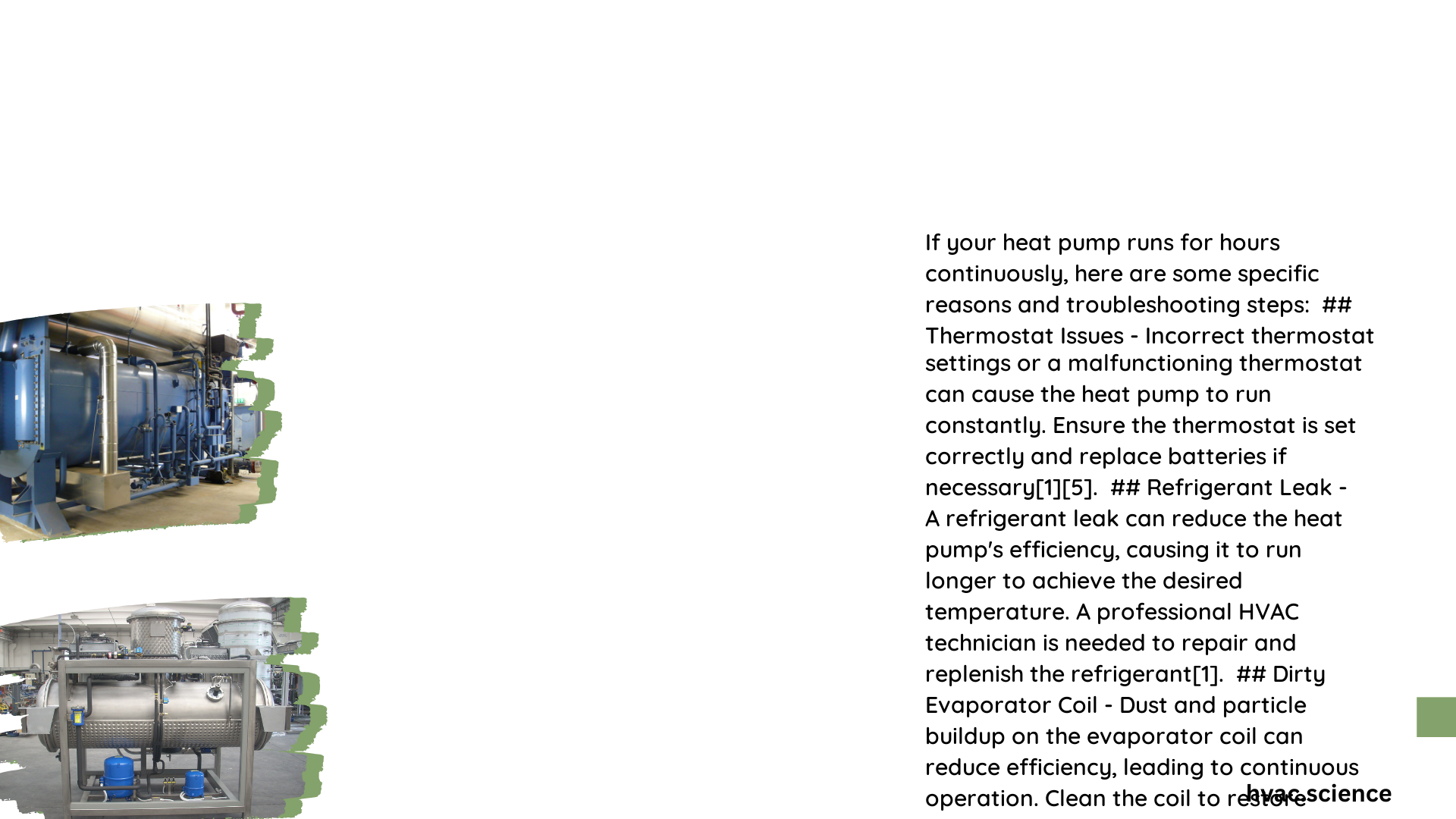Heat pumps running for extended periods is a common occurrence in many households. This continuous operation can be both a sign of efficiency and a potential concern. Understanding why a heat pump runs for hours, its impact on energy consumption, and how to optimize its performance is crucial for homeowners. This article explores the reasons behind prolonged heat pump operation, its effects on efficiency and wear, and provides practical solutions to ensure optimal performance.
Why Does My Heat Pump Run for Hours?
Heat pumps are designed to run for extended periods, often operating continuously at variable speeds to maintain desired indoor temperatures efficiently. This behavior is normal and can be attributed to several factors:
- Outdoor temperature extremes
- Inadequate insulation
- Improper system sizing
- Thermostat settings
- Maintenance issues
Let’s delve deeper into each of these factors and their impact on heat pump operation.
What Are the Energy Implications of a Heat Pump Running Continuously?

When a heat pump runs for hours, it’s natural to be concerned about energy consumption. However, the energy implications depend on several factors:
- Efficiency ratings: Higher SEER (Seasonal Energy Efficiency Ratio) and HSPF (Heating Seasonal Performance Factor) ratings indicate better efficiency.
- Variable-speed technology: Modern heat pumps with inverter technology can adjust their output, potentially saving energy even during extended operation.
- Outdoor temperature: Extreme temperatures can reduce efficiency and increase energy consumption.
Here’s a breakdown of potential energy consumption based on efficiency ratings:
| Efficiency Rating | Energy Consumption for 100,000 BTUs |
|---|---|
| SEER 14 (Cooling) | Approximately 7.14 kWh |
| HSPF 9 (Heating) | Approximately 11.11 kWh |
It’s important to note that these figures are estimates and actual consumption may vary based on specific conditions and system performance.
How Does Prolonged Operation Affect Heat Pump Components?
Extended runtime can impact various components of a heat pump system:
- Compressor: The heart of the system, it may experience increased wear over time.
- Fan motors: Continuous operation can lead to faster deterioration.
- Refrigerant lines: Prolonged use may increase the risk of leaks.
- Air filters: More frequent replacements may be necessary.
Regular maintenance and proper sizing can help mitigate these effects and extend the lifespan of your heat pump.
What Are the Best Practices for Efficient Heat Pump Operation?
To ensure your heat pump runs efficiently, even during extended periods, consider the following best practices:
- Proper sizing: Ensure your heat pump is correctly sized for your home.
- Regular maintenance: Schedule annual professional check-ups and perform routine cleaning.
- Optimize thermostat settings: Use programmable or smart thermostats to manage temperature efficiently.
- Improve insulation: Enhance your home’s insulation to reduce the load on your heat pump.
- Monitor refrigerant levels: Low refrigerant can cause the system to run longer and less efficiently.
When Should I Be Concerned About My Heat Pump Running Continuously?
While it’s normal for heat pumps to run for extended periods, there are situations where continuous operation might indicate a problem:
- Unusually high energy bills: A sudden spike in energy consumption could signal inefficiency.
- Failure to maintain desired temperature: If your home isn’t reaching the set temperature, there might be an issue.
- Strange noises or odors: These could indicate mechanical problems requiring immediate attention.
- Frequent cycling: Short, frequent on-off cycles can be as concerning as continuous operation.
If you notice any of these signs, it’s advisable to consult with a professional HVAC technician.
How Can I Improve My Heat Pump’s Efficiency During Extended Operation?
To enhance your heat pump’s efficiency during long running periods:
- Use ceiling fans: They can help distribute warm or cool air more evenly.
- Seal air leaks: Prevent conditioned air from escaping through gaps and cracks.
- Clean or replace filters regularly: This ensures proper airflow and reduces strain on the system.
- Consider a zoning system: This allows you to heat or cool specific areas, potentially reducing overall runtime.
- Upgrade to a more efficient model: If your current heat pump is old, a newer, more efficient model could provide significant energy savings.
By implementing these strategies, you can ensure that your heat pump operates efficiently, even when it needs to run for extended periods.
In conclusion, while a heat pump running for hours is often normal, understanding the factors influencing its operation and implementing best practices can help optimize its performance and efficiency. Regular maintenance, proper sizing, and attention to your home’s overall energy efficiency are key to ensuring your heat pump operates effectively, providing comfort while minimizing energy consumption.
